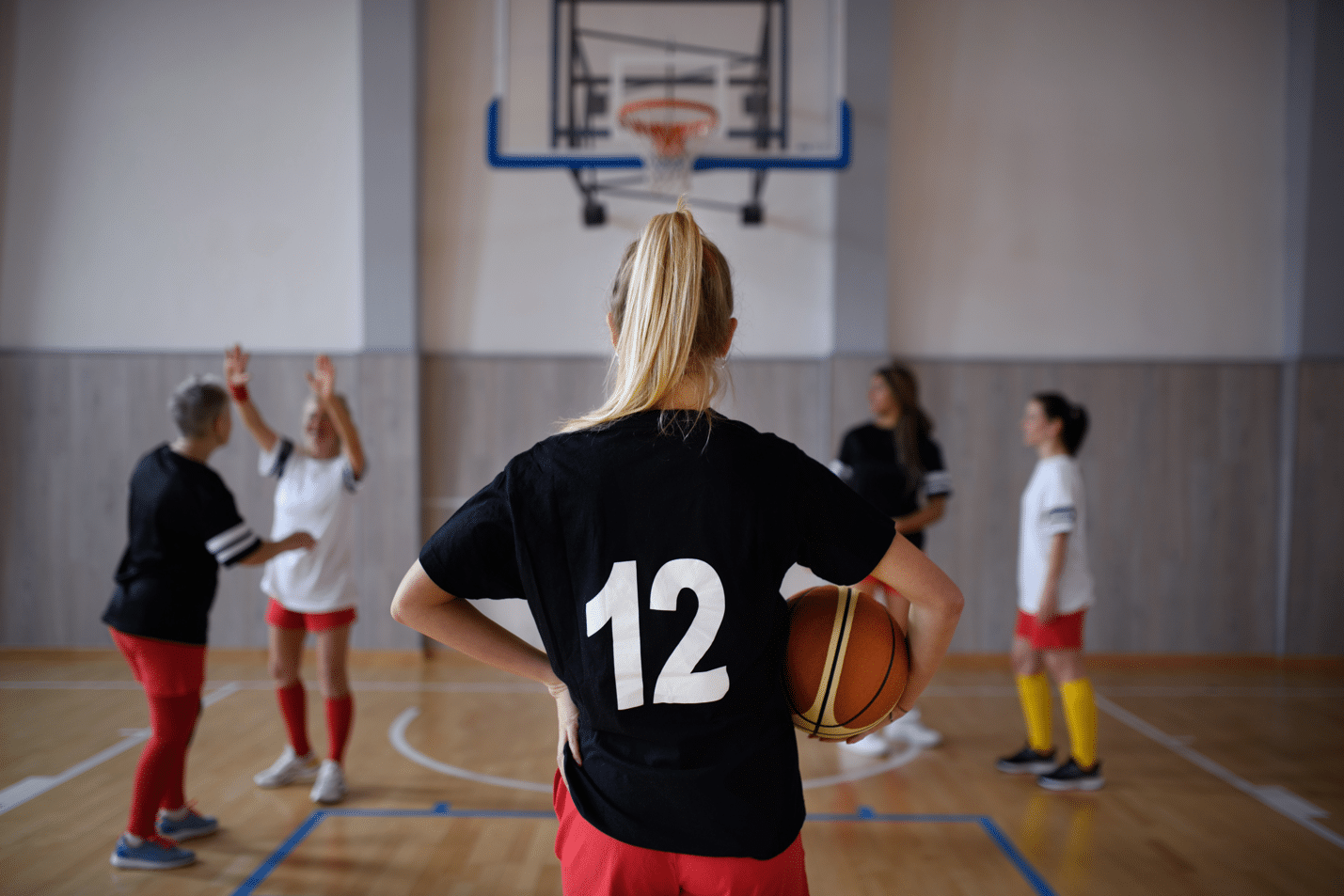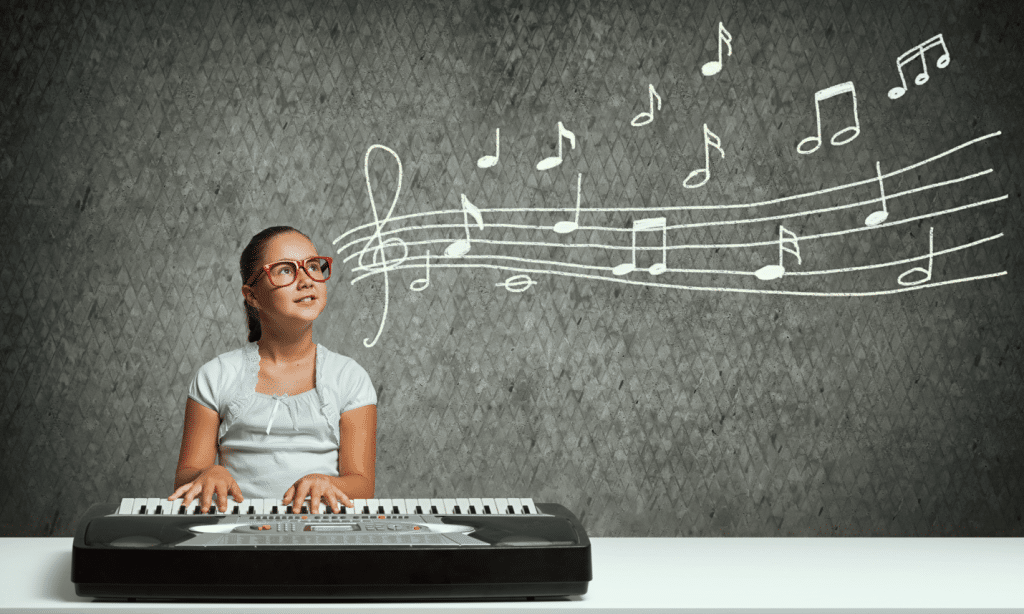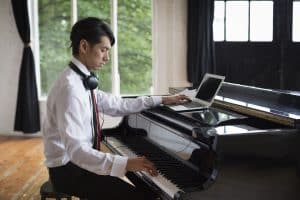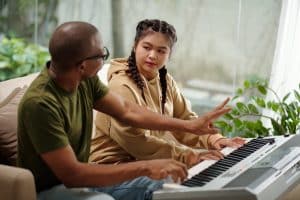I was four years into teaching private piano lessons a 12 year old girl (we’ll call her Sarah) and one day, after Sarah’s lesson, her mother pulled me aside to speak with me. She said Sarah had been complaining about her piano lessons as of late and wanted to quit.
Sarah’s mother had played piano when she was younger and quit because she grew to dislike it but later in life regretted that she didn’t keep up with it. It was a familiar cycle and she didn’t want to see her daughter go through the same thing but at the same time didn’t want to force her to do something she didn’t like.
She asked me earnestly, “what should we do?”. Click here to see what I told her.
The Dilemma: What to do when your child wants out
Usually when a parent has a child who’s unhappy with their piano lessons they just say “ok, we’ll stop the lessons.” Or “we’ll find a new piano teacher.” Or they will say “No, you have to keep piano lessons in your life. You’ll thank me later.” But I never got a parent who looked to me to make the decision.
As if the balance of fate of her child’s musical future depended on what I said. I could feel the pressure and at the same time felt that if I recommended she’d stay or leave then either is what would happen.
Come from a place of understanding: How I learned to be tuned to my students needs
To understand my answer I need to give a little context for who Sarah was and where she was on her piano playing journey.
Sarah was a good student and we would often work on easy piano songs for beginners but I could tell the weeks she practiced and didn’t practice piano. When she practiced, we excelled in the lesson and we could move on to more advanced areas to get her playing the way she wanted to.
When she didn’t practice it was like trekking through molasses to get her back on track. Like many of my students, she wanted to learn piano fast but didn’t want to put in the work or lacked the motivation to practice and develop her piano skills. Despite my piano practice tips, there was something else occupying Sarah’s time that would prevent her from taking the time to practice.
Sarah had been doing exceedingly well in basketball at school and she was excelling in it. There came a point though when a choice had to be made about where her extracurricular efforts would be most beneficial to her. She was starting to play in school leagues and devoting more and more of her time to basketball practice after school and less for piano practice.

The Decision: Sometimes you must take yourself out of the equation.
I looked at Sarah and felt conflicted.
On one hand I really thought if we could just break through this plateau, that we would excel to the next level of her playing, unlocking all sorts of repertoire and improving her piano technique.
On the other hand, I saw how increasingly unhappy she was becoming and how she seemed to light up when I would ask her about basketball at the beginning of her piano lessons. She’d show me her latest trophies and tell me about her upcoming games. After some consideration, I made my decision and said this.
“At the end of the day, you must do what you think is best for you. What makes you happy? If playing the piano doesn’t make you happy, there’s no shame in walking away. You can always come back to it. Take a break so to speak. Do I want you to do that? Of course not! But I want you to be happy.
If basketball is what makes you happy then pursue it as far as you can go even if that means letting go of the piano for now. But I ask if you do that, don’t completely leave piano out of your life. It doesn’t even have to be piano. It could be any instrument you want but, in my opinion, there is seldom anything better than the pursuit of creating music in your life.
That being said, I think you should pursue basketball and pour all of your energy into it. Piano would only hold you back from that right now. And if you want to come back, you can always call me.”

Play your strengths: It’s okay to leave one activity behind in favor of another
Sarah had a healthy outlet that happened to be in sports that allowed her to express herself. She was getting the fulfillment that piano often gives me and many others around the world, just in a different discipline.
My answer to the first question: “What if my child wants to stop piano lessons? Should I let them?”
The answer is yes, so long as they have another discipline that fulfills them and gives them purpose in their developing years.
If they don’t do what you can to ignite that flame of passion that was there when the lessons started or ask your child if there is anything they are passionate about and if you can help facilitate that. Sarah had her passion which is why it was easy for me to let her go pursue her passion for basketball.
Sarah was 8 when I first met her and 12 when she stopped taking piano lessons. Now she’s in college winning basketball championships and I couldn’t be more proud of her!




